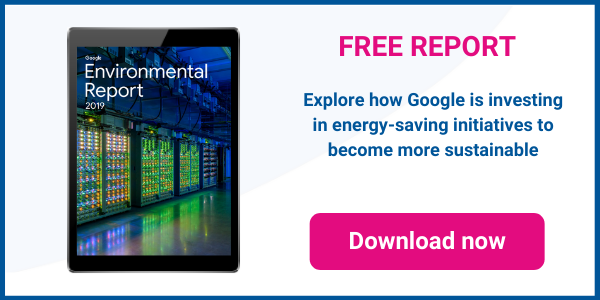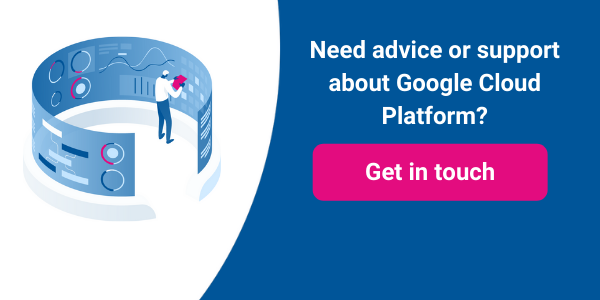Every year, humanity uses far more resources than the Earth can replenish, while climate change driven by greenhouse gas emissions has resulted in the last ten years being the hottest decade since records began. Facts like these mean businesses are under increasing pressure — from customers, current and potential employees, and a growing number of environmentally aware CEOs — to take a sustainable “green” approach to their operations.
To do that, businesses need to consider every part of their supply chain, including their IT partners. Running servers, networks and user devices can have a huge but largely hidden impact on your environmental footprint.
Here are 3 questions to ask IT suppliers to find out if they can help your business become "greener":
1. Where does the electricity powering your services come from?
You need a supplier that’s either sourcing “clean” energy from renewable sources — such as wind and solar — or offsetting fossil fuel emissions for a carbon-neutral approach. Since 2017, Google has matched 100% of its global energy consumption with purchase of energy from renewable sources. That's the equivalent of taking 1.2 million cars off the road and makes Google the world's largest corporate buyer of renewable energy.
However, because wind and solar power aren’t available in all locations, some of the energy Google draws from the grid still comes from fossil fuels. That’s why, since 2010, the company has committed to investing more $2.5 billion in renewable energy projects to allow it to use carbon-free energy in all places at all times.
2. How do you minimise the amount of energy needed to provide your services?
You need a supplier that’s focused on carefully monitoring every aspect of its operations, and that backs that up with smart and innovative design choices for its infrastructure. This kind of attention to detail at Google means Google’s data centres already use 50% less energy than the average enterprise data centre and are they’re becoming more efficient every year. In fact, compared with 5 years ago, Google’s data centres can now deliver around 7 times as much computing power with the same amount of electrical power.
Google is also at the forefront of innovations such as using Machine Learning to automatically manage its cooling systems. In the sites where this has been implemented, it’s reducing energy demand by 30% compared to traditional cooling management.
3. How do you minimise the impact of your operations on the environment — globally and locally?
You need a supplier that aims to minimise the amount of waste it produces and which takes a responsible approach to the communities around its data centres. Google is committed to sending zero waste to landfill from its data centre operations. By 2018, it was already able to divert 87% of waste away from landfill, through a combination of reducing the amount of waste it generates and finding better disposal options.
It’s also committed to creating a ‘circular economy” where everything it uses can be easily refurbished, repaired, reused and recycled. On top of that, waste is “designed out” when products are developed and only “chemically safe” materials are used. This applies to both the hardware in its data centres and to the products it creates for end users.
Google also aims to be a “good neighbour” to the communities in which it builds its data centres. One way it does this is by making sure its data centres don't affect the local drinking water supply, whether that's by processing municipal waste water or harvesting rainwater. It also works with local conservation groups to create landscaping around its facilities that help local wildlife to thrive. At its headquarters in the San Francisco Bay Area, for example, sterile lawns and hedges have been replaced by wildflower colonies that are home to bees and butterflies.
For cosmetics company and Ancoris client Lush, Google's green credentials are vital to achieving its own “ethical” mission. “Everything we do inside our technology arm we want to make sure is powered by 100% renewable energy and the alignment for that is great with Google,” says Lush’s head of engineering, Ryan Kerry.
Of course, Google also provides a wealth of products and services to help organisations like yours to use IT to become “greener” themselves. You can reduce your travel footprint by using Google Meet. You can eliminate paper waste by replacing paper forms with custom mobile apps created using Google App Engine. Or you can use the powerful analytics in Google BigQuery to minimise waste in your supply chain.
Working with a Google Cloud Platform Premier Partner
As a leading Google Cloud Service Partner, we have considerable experience with Google Cloud Platform, both assisting clients to future proof their business with cloud infrastructure.
Cloud adoption is not just about agility and cost optimisation — it’s about building the very foundations you need to continuously innovate and stay ahead. A cloud-first architecture using Google Cloud Platform not only modernises your infrastructure but unlocks a whole new world of digital freedom and opportunity.
Our onboarding methodology will help you realise value in weeks, not months so you can save costs and increase agility.
If you’d like to find out more about moving to the cloud and how Google Cloud could help you, why not take a look at some of our customer success stories or browse our resources. Needless to say, please get in touch with our team if you'd like more practical support and guidance.
Article updated April 2021
First published July 2017


